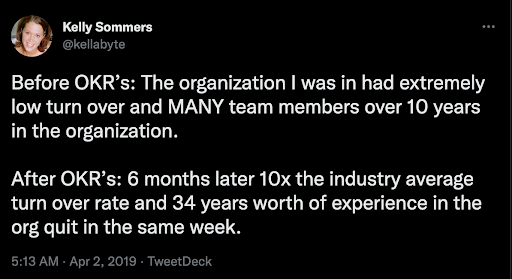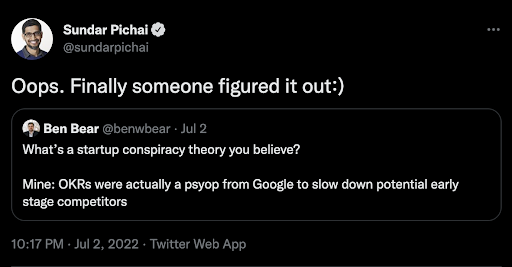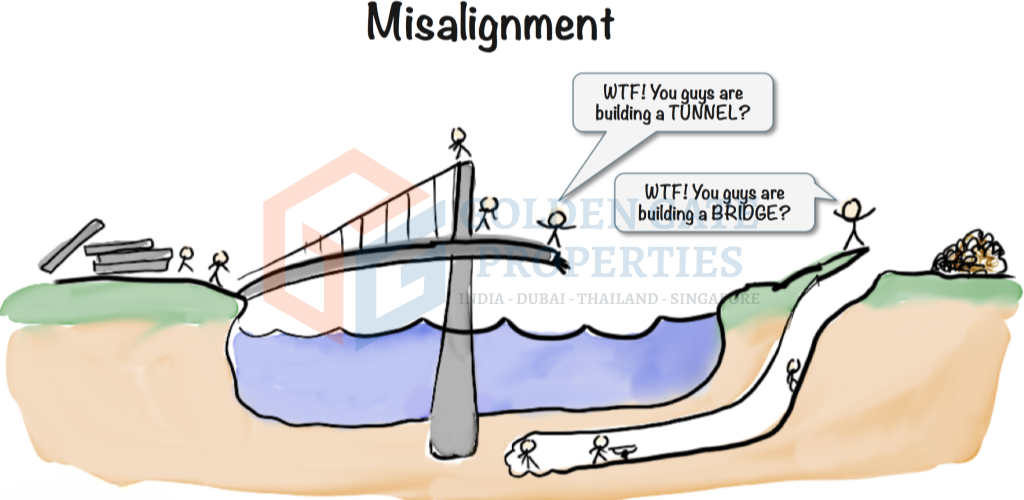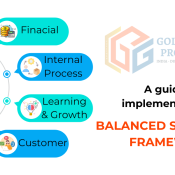
The OKR trap: How to avoid it (Part 1)
Ask CEOs, team leaders, and workers what they think about OKRs, and you’ll receive a wide range of responses.
Some people despise OKRs, claiming they are a failure of a performance management system. They argue that OKRs produce a negative employee experience and impair corporate performance.
However, some leaders and consulting businesses see OKRs as the finest goal-setting framework that works for everyone. They may even argue that OKRs are necessary to elicit more productivity from their staff by establishing (overly ambitious) targets.
None of them resonate, which is because we don’t believe there is a shared understanding of the role of OKRs inside an organisation.
OKRs should lead to acute concentration and strategic execution.
Forget everything you thought you knew about OKRs. They should not be unending to-do lists that turn your strategic goals into a box-ticking competition. They should not be set at the executive level and then dictated to teams that must carry them out. They should not be used as a control tool to demotivate your top performers and force them out the door.

These OKRs aren’t strategic. This method diverts firms’ attention away from the problems that OKRs claim to fix.
Strategic OKRs should assist leaders in translating their vision into something achievable via rigorous planning, relentless execution, and tenacity.
Strategic OKRs should assist businesses bridge the gap between strategy and execution.
They should assist teams work on common goals, focus on strategic priorities, and promote corporate success.
So where is the catch? Why are OKRs developing a negative reputation, despite their popularity?
Simply glancing at OKRs’ dedicated admirers, however, reveals a pattern:
Microsoft
Amazon
Intel
All of them are technology businesses that owe their extraordinary success to OKR.
Unfortunately, the historical success of software behemoths has led many organisations straight into the OKR trap, depending on the premise that OKRs function the same way for everyone while entirely neglecting the context and preparedness of the organisation for OKRs.
It’s no surprise that 70% of organisations fail to adopt OKRs. In a fiery tweet, even Google’s CEO stated:

Why OKRs lead to negative experiences and delay business growth
OKRs are simple to understand but difficult to apply. Suppose your organisation is debating whether it is ready for OKRs or not. In that case, you should be aware of some fundamental, systemic disadvantages that impact how OKRs work in the real world:
The corporation lacks strategic alignment, resulting in turmoil. OKRs fail in compartmentalised organisations. Silos are a death sentence for your goals at all levels. Instead of concentrating on cross-functional cooperation to accomplish business OKRs, teams fight for resources to meet their team OKRs.
The plan lacks direction (resulting in everyone becoming lost).
Teams or individuals cannot create appropriate OKRs if they do not understand where the firm is headed. Without defined goals and a road plan, teams will struggle to achieve the outcomes that leaders anticipate.
Nacho Bassino is the Director of Product at XING. According to him, “direction will help teams understand what problems they should focus on, generating less friction between top-down and bottom-up alternatives.”
If leaders do not guarantee that their strategic planning provides clarity of direction, teams will squander time on ineffective activities rather than concentrating on the correct challenges.

Focusing on individual OKRs
According to HBR, OKRs encourage employees to set binary goals that are simple to evaluate but do not indicate whether they have a positive or negative influence on business performance.
Here’s how it may look in practice:
Goal: Improve my coding abilities and earn a mid-level software developer rating by the end of Q2 2021.
Key Result: Take three courses on the most recent programming languages.
Key Result: Read ten books on being a superb software developer.
Key Result: I received my DevOps professional certification.
Can you determine how this person’s efforts affect business performance? Hell no.
Suppose you consider OKRs as an HR tool. In that case, they become monotonous and stop being useful to anybody other than the employee—this affects the team direction and becomes the starting point of slow strategic deviation.
“The improper approach to OKRs can destroy productivity and effectiveness, as well as foster scepticism among teams involved in the deployment of a new process or system. Most significantly, it can squander a significant amount of time and energy while producing poor organisational outcomes.” – Dr PV Siddharth – CEO – Golden Gate Properties.
Most firms eventually realise that individual OKRs are reducing overall productivity and are compelled to reconsider their performance approach.
Take a peek at Spotify. They decided to discontinue utilising employee OKRs since they slowed them down. When their OKRs changed at the corporate level, it required too much time and effort to update OKRs at all levels of the organisation.
This is a no-no if you need to move quickly to surpass your competitors.
While OKRs are useful on a larger scale, they become less effective on a smaller scale.
Leaders believe OKRs function the same way for everyone (spoiler: they don’t).
Just because Google popularised OKRs does not imply they will work for you. You must analyse the industry in which your organisation works.
Assume you operate a food manufacturing firm that aims to expand into a new region. You need to invest in real estate, machinery, materials, production, sales, and distribution.
Strategic planning in this context necessitates a long-term perspective. Because the standard OKR structure focuses on quarterly goals, your company may fail to meet its objectives using this technique.
“Organisations and leaders are unaware that the OKR framework was initially created for short intervals (rhythm), often quarterly, strategy execution method. Most CEOs create three to five-year strategic plans and expect the OKR framework to function the same way. – Adithi Reddy – COO – Cullinan Creative Concepts
OKRs should be used by your organization’s maturity level. OKRs should be beneficial rather than detrimental. Even Google no longer uses OKRs in the same way it did in the beginning.
In 2019, CEO Sundar Pichai removed quarterly OKRs, opting to “focus solely on annual OKRs with quarterly progress reports.” This turn fits Google’s now-stable organisation, allowing it to spend less time planning and more time on long-term projects. As the organisation grew, management recognised the need for a new strategy.
It demonstrates that the framework should not constrain us. It is adaptable, not just to changes in the external environment, but also to the current state of your organisation.



